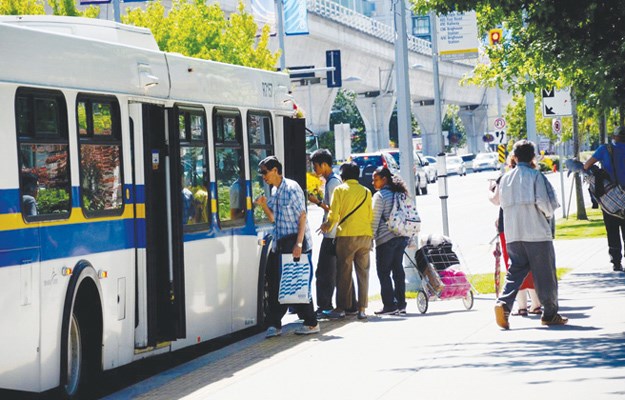Dear Editor,
Every year, the sight of students springing from the somnolence of summer into the scholastics and studies of September evokes a sense of hope, promise and optimism, for futures and friendships forged.
Regarding transit, it’s a sense of opportunity lost.
During the first chaotic days, we see swarms of excited kids cramming onto buses at all sorts of odd times, edging out regular riders.
Then the curriculums and schedules normalize and routine descends, which, unfortunately for too many students, means being driven to school, even for relatively short distances that in earlier days would have been walked.
Compliments of TransLink, International Walk to School Week in early October includes free transit for kids.
But by then it’s too late.
Aside the fact there’s no benefit for kids who already take the bus (thanks to the $52 monthly pass, we’re giving a break to people who AREN’T loyal customers) habits are already set.
What if, instead, transit for elementary and high school students was free for the whole month of September?
With Labour Day and juggling classes, half the month is past before they’re even settled in, and the other half is still (hopefully) mild enough to make taking the bus and hanging with friends before and after school fun and easy.
By the time the blustery winds of October came, routines would be set, for students and parents alike, and a bus pass is perhaps the easiest choice.
The TransLink bulletin for Walk to School Week asks, “Why free transit rides when it’s called ‘Walk to School Week’? It’s simple — both walking and taking transit promotes good health and independence, while keeping greenhouse gases to a minimum.”
Exactly.
And what better time to start legitimately promoting that lifestyle than when people are students?
(Another transit-discouraging September tradition is the sight of eager university and college students heading to class, massed at stops along almost every major route, watching as bus after full bus passes them by).
Sadly, I have little doubt that ten years from now, when the kids who could be taking the bus today, start heading out on their own, we’ll still be having the agonizing discussion over how to transform ourselves into a transit-oriented society.
If we’d just provide the right lessons now, it would already be a reality.
David Magowan
Richmond



